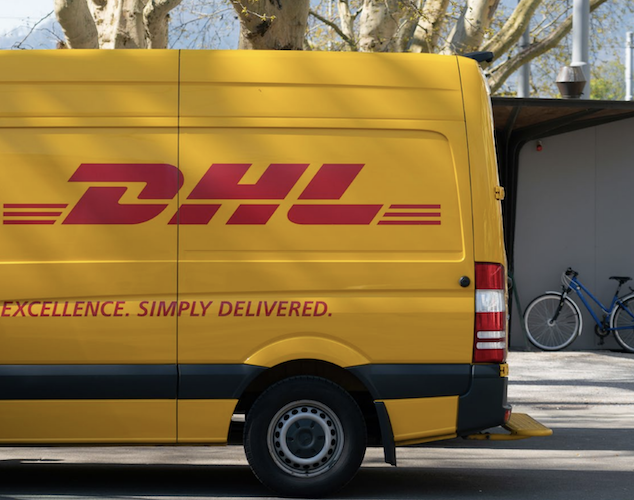Deliveries keep the city going, but they come with a cost, in pollution, carbon emissions, health, congestion and more. And with home shopping deliveries forecast to double by 2030, there’s an urgent need to tackle an increasingly unsustainable system.
That’s the message from the Centre for London think tank in a hard-hitting new report, published to coincide with the COP26 climate change summit, calling for action by the freight industry, government, City Hall, London’s councils – and online shoppers themselves.
The figures are stark: diesel and petrol vans ferrying goods and services around the city contribute a quarter or more of London’s greenhouse gas and polluting emissions from transport, contributing to some 4,000 deaths in the capital in 2019.
Van sales are booming too, to keep pace with demand, with diesel van sales up 82 per cent in 2020/21, contributing to making the city’s constrained streets the most congested in the UK.
It’s not just online shopping deliveries. Food and drink consignments, waste and recycling transport – half a tonne of waste per household per year – construction materials and supplies to offices, hospitals and more, all contribute to a growing problem.
But consumers have an important part to play, with London’s online shoppers needing to “realise the cost of their convenience”, as Natasha Patel, of consultancy Baringa, said at the report launch.
A big shift, from home delivery to collecting more of our shopping from neighbourhood pick-up points, is needed, the report says, calling on Sadiq Khan to work with councils and delivery companies to get 10,000 of those in place by 2025.
That would bring a pick-up point within 250 metres of nine out of 10 Londoners, making “last mile” deliveries cheaper, cutting the number of van journeys significantly, and doing away with missed home deliveries.
Other recommendations include expanding road user charging, to deter unnecessary trips and reduce congestion, “dynamic” kerb management giving delivery vehicles more reliable access to their destinations and allowing quieter deliveries in the evening and at night.
With electric vans still making up just two per cent of commercial sales, the shift to electric vehicles needs a boost too, with extra cash for network upgrades and rapid charging points – 500 in place but some 4,000 estimated to be needed across the city by 2025. London’s piers, wharves and rail-road interchanges should be improved too, to help the river and railways become viable alternatives to road transport, the report says.
Shortage of land, particularly for sites where delivery companies could consolidate consignments for more efficient “last-mile” delivery, was a major hurdle, the report highlights, with pressure from more housing and office space seeing industrial land lost at a much faster rate than planned, and prices rising.
“The city is so big, so congested, that you can’t service London from the edge of London. We need logistic space within London,” said Robin Woodbridge, from leading logistics space developer and research sponsor Prologis UK, speaking at the report launch.
The shortage of industrial land for repacking loads closer to the homes to which they are destined “makes it harder for companies to manage logistics, and also increases traffic as more vehicles drive longer distances”, the report says,
It urges Mayor Khan to work with councils to ensure space is available for logistics hubs where delivery companies can consolidate deliveries, as well as making construction material and delivery consolidation in major developments a requirement for planning permission.
There’s a timely warning too, that new consolidation centres in residential areas, while beneficial at city scale, “tend to face opposition from residents due to their local impact on traffic and air pollution”.
It’s another land use battlefront already opened in Islington, where resident campaign group Nocado is battling plans for an Ocado distribution centre on an industrial estate in Upper Holloway, arguing it would cause congestion and increased air pollution, particularly affecting the Yerbury primary school next door.
Despite one High Court setback, Ocado are continuing with their application for what they say will be the “greenest and quietest grocery facility in the UK, with a 100 per cent electric fleet”, in a borough where they claim to have delivered to one in six households in 2020.
Image from the Centre for London report. The launch event for the Centre for London report can be viewed here.
On London is a small but influential website which strives to provide more of the kind of journalism the capital city needs. Become a supporter for £5 a month or £50 a year and receive an action-packed weekly newsletter and free entry to online events. Details here.


Environmental improvement will add complexity and cost to the system, increasing prices.
Also, government will need to review competition legislation to permit more sharing of local hub facilities (which in themselves become monopolies to be regulated).
If the current and previous London Mayors had taken a much tougher line on carbon-free emissions at the exhaust pipe of deliveries and servicing vehicles, we would not be in this position. It was never good enough to cave-in to the road haulage lobby and give them such a long time in which to start switching to cleaner vehicles.
It is also not good enough to say vehicles driving in London have to be ‘capable of’ of being carbon-free at the exhaust. It has to be mandatory for vehicles to be electricity or lpg fuelled, and within two years.